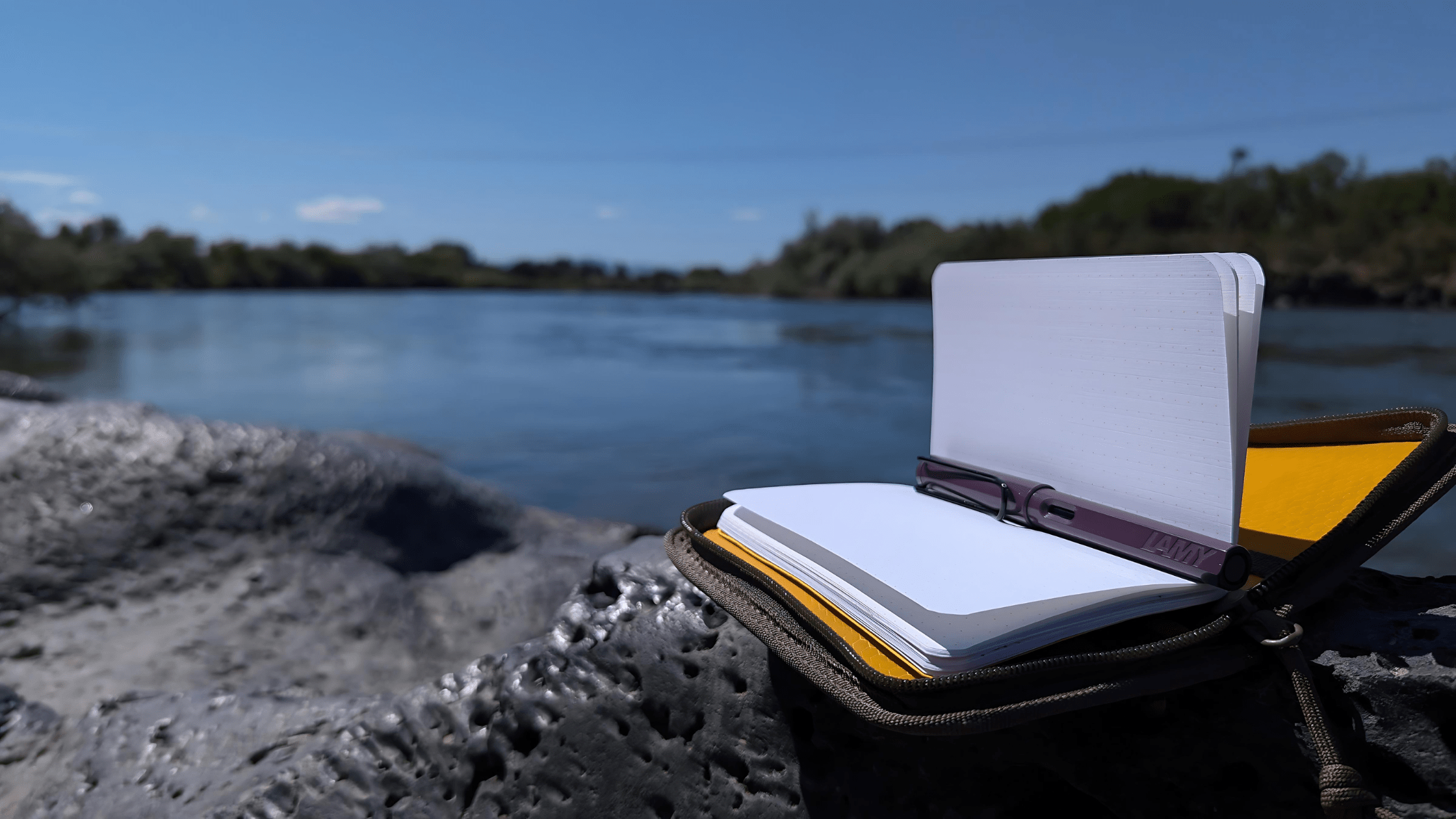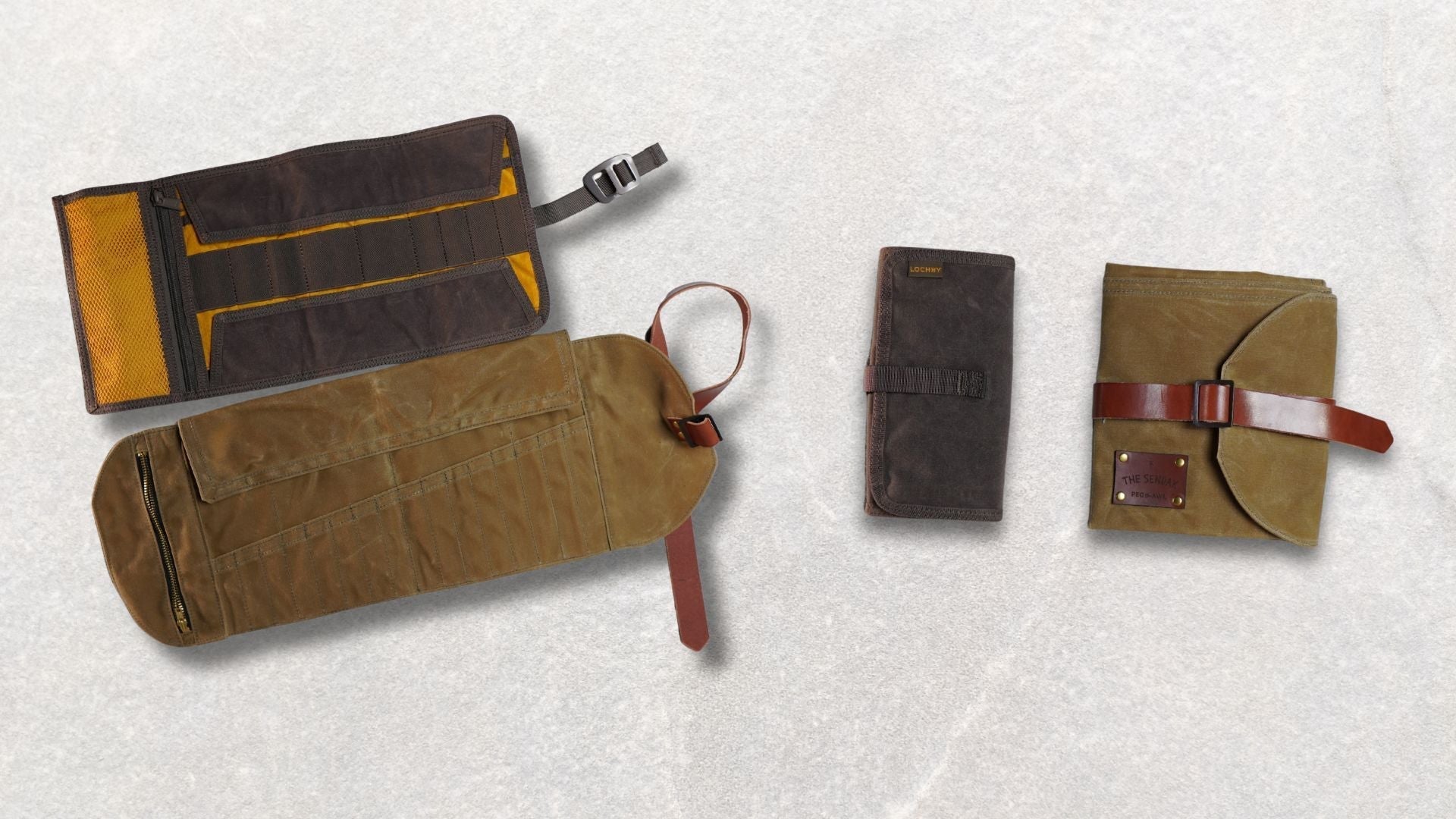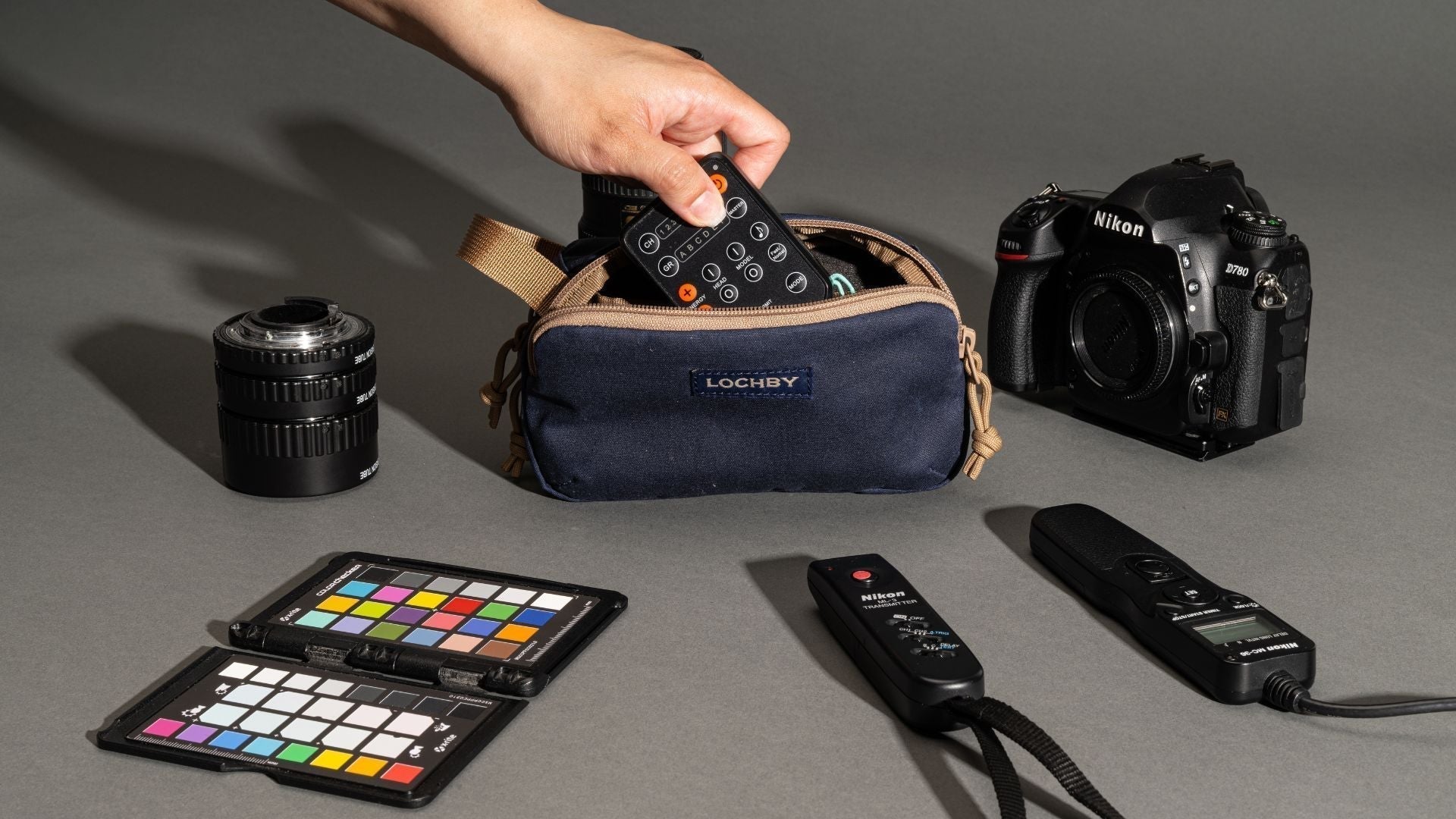Writing poetry is more than just an art—it's a journey of self-discovery and creative expression. In today's blog post, let's join Brian Baker as he recounts his own path to becoming a poet.
From his early struggles with writing anxiety to finding solace and inspiration in the natural world, he also offers insights into his analog writing process, practical tips for aspiring poets, and reflections on the power of poetry.
We hope that his story will inspire you to pick up a pen, open a notebook, and explore the poet within you!
After five hours of broken sleep, I’m up at 4:40 a.m., and about 30 minutes later, my ride shows up in his enormous pickup truck. Even with the rumbling of the diesel engine, there’s a stillness to these sleepy hours. As we drive through Utah’s Tooele Valley, I watch as the silhouette of the Oquirrh Mountain Range materializes, backlit by the rising sun. And then, as the freeway wraps eastward beyond the mountains, dawn explodes across the Salt Lake Valley.
This isn’t my typical morning. I’m on my way to volunteer at a youth camp for a few days. And in the midst of emptying garbage cans and filling water coolers, I’m hoping for some time to write a poem or two. Even on this drive, as we wind through Weber Canyon and around Pineview Reservoir, I can feel the magnetic urge to pull my pocket notebook out of my backpack and document this stunning landscape.

How I Became a Poet
Growing up, I had more exposure to poetry than most people, but not by much, and, like most people, I saw poetry as an outmoded artform that was all about rhyming words. Needless to say, I had no desire to write poetry. In fact, writing in general was terribly difficult for me, and it gave me a lot of anxiety. However, early in high school I had a wise teacher who made his class keep a journal of what we were learning. I kept up the habit through the rest of high school and into college, and pretty quickly I found myself departing from gathering lists of facts and ideas and instead taking deeper dives into what I was studying and thinking about, sometimes writing several pages on one topic. That pretty much cured me of my writing anxiety.
As a teenager, my biggest creative outlet was music. I wanted to write movie scores and become the next John Williams. But as a freshman in college, one of the books I was assigned to read was 101 Great American Poems, which offers a sampling of American poetry from the 17th century to the 20th. And I was completely dazzled by the music of those 101 poems. I realized that poetry was a lot more sophisticated and powerful than the trite greeting card poems we often think of. I was especially inspired by poets like Robert Frost and Carl Sandburg.
So, after reading that book I decided to shift my focus to writing poetry—music made of words. Since then, I’ve earned a bachelor’s degree in English, a master’s degree in creative writing, and I’ve had my poems published in many literary magazines. For my day job, I’m a freelance writer and editor, and I help people with all kinds of writing projects, from poems to websites and everything in between—which brings my story full-circle, from a kid who was petrified of writing to a professional who helps other people with their writing projects. I still have a lot to learn, but it’s surreal to look back and see how far I’ve come.

Writing On-the-go
When we arrive at camp, there’s plenty of downtime scheduled. I set up my tent, throw my gear inside, and hang up my hammock—a recent birthday present from my mom and sister. It has become my outdoor writing studio that I take camping and hiking. Once it’s up, I climb in and lean back. As my hammock swings gently, I open my notebook and begin to write.
I don’t go camping that often, but I do often write on-the-go. As a parent of two small children, I don’t always have the luxury of a quiet writing space that I can retreat to whenever I want. I have to find ways of fitting my writing into the cracks of the day—in the kitchen, at the park, at the grocery store. That might be one reason why I love writing in notebooks so much. They’re easy to take with you and—in my opinion—so much nicer than writing on your phone.

My Analog Writing Process
My writing process has changed a lot over time. Typically, I’ll capture my initial ideas in a notebook while I’m out and about, then transcribe my handwritten notes into a Google doc later, where I keep chipping away until I have something ready to submit for publication. However, I decided that for 2024 my poetry writing would be exclusively analog. I’m always looking for ways to spend less time on screens (though I’m pretty bad at it), and I thought this would be a worthwhile exercise.
And if you think about it, computers—and even typewriters—are brand new in the grand scheme of literary history. Most of the world’s great literature was written with a pen or pencil. And if writing by hand was good enough for Shakespeare, Rumi, and Emily Dickinson, it should be good enough for me, right? What’s more, studies are showing that writing by hand engages the brain in a more powerful way than typing. So why wouldn’t I want to follow in the footsteps of history’s creative giants and take advantage of handwriting’s proven benefits?
Writing poetry exclusively by hand has been quite an adjustment. My initial excitement gave way to the reality that writing by hand is a slow process. There’s a reason why most people have converted to digital alternatives. But I’m getting used to my analog process, even enjoying it, and I’ll probably stay with it in 2025 and beyond.
My analog writing process goes something like this:
First, it requires two notebooks, a pocket-sized and an A5. There’s nothing magical about these sizes, but they work for me.

My Lochby Pocket Journal goes everywhere with me. It’s my mobile writing studio. It’s portable, durable, and has slots for several pens, which is very handy. When inspiration strikes, whether at home or on a hike, I’ll whip out my pocket journal and do my best to capture what’s on my mind. It could be a single word I find interesting, a funny conversation overheard at Walmart, or a quick snapshot of a scene or image. If I’m lucky, it might be an early draft of an entire poem.
At this stage, I’m not trying to edit or critique my thoughts. I’m like a kid with an Easter basket picking up everything I can find. I can open the Easter eggs later to see if I like the candy inside.
From there, if I’ve recorded an idea that I want to explore further, I’ll find a quiet moment to transcribe it into an A5 notebook that I keep in my Lochby Field Journal. Although my field journal spends plenty of time on my desk in my home office, I take it a lot of places with me as well: overnight visits to my grandparents’ house, the occasional camping trip, etc. This larger format offers the space I need to flesh out my ideas. I can take notes in the margins and experiment with multiple drafts, and the A5 size allows me to see more of my writing on a single spread without having to turn the page.

One thing I love about writing poetry by hand is that there’s no backspace key, which forces you to start over every time you want to create a new draft. This helps me break a poem open and make more aggressive changes than simply swapping out a couple of words or moving a line or two around on the computer screen.
Each time I write a new draft, I note down the page number in an index in the back of my notebook. That way I can find all of my drafts easily if I need to refer back to them.

When I feel like a poem is done, it’s time for the only digital step in my writing process. I type it up on the computer to get an idea of how it will look when published. I make any necessary last-minute changes, and then I start submitting to literary magazines, a process that is almost exclusively digital these days. But I’m okay with relying on digital convenience here, as it helps save time for me to create more by hand.

Want to Become a Poet? Here’s How to Get Started
One thing I love about poetry is how accessible it is. You don’t need any fancy equipment. You don’t need the perfect location. You can write brilliant poetry with a dollar store notebook and a free pen from a hotel room. And you can get started right away, wherever you are. As you’re getting started, here are some tips to help you along the way:
- Like anything, consistent practice is key. Try to write every day, even if it’s just a few lines.
- You can’t have good creative output without good creative input. Try to cut back on poor input, such as TV and TikTok, and spend more time reading good poetry, listening to poetry podcasts, and exploring nature or other places that inspire you.
- Don’t be critical of your ideas. Just get them down on paper. You can revise later.
- Don’t write poetry for fame or money. There’s very little of either to be had in poetry. Even the most successful poets usually have day jobs.
- When you’re ready, get honest feedback on your work from people you trust. Be open to good suggestions.
- If you decide you enjoy writing poetry by hand, then consider investing in tools that will make the process more enjoyable, such as a good fountain pen or a Lochby journal. Personally, my favorite pen for long writing sessions is the Lamy Safari with a fine nib. But if you’re satisfied with your dollar store notebook and hotel pen, then more power to you!
- Take your writing seriously, but not too seriously. Have fun with it! And don’t be afraid to take creative risks and try something new.
- If you decide you want to try getting your poetry published in magazines, create a free Submittable account and start browsing publication venues under the Discover tab. And be patient with the submission process. I’ve had roughly 15 creative pieces published, but that’s after submitting to hundreds of magazines.

In It for the Long Haul
It’s time to take down the hammock and roll up the tent. Aside from some dirt, my gear doesn’t appear any different from when I arrived just a few days earlier. But in my backpack, tucked away inside my field journal, I have new drafts of two poems to take home with me, poems I plan to keep working on and hope to someday publish.
Sometimes poems are written in a single sitting, but more often it takes months (or even years) of revising to get it right. But writing poetry ultimately isn’t about the end result. Like anything worthwhile, it’s about what you gain from the process. And believe me, I’ve gained a lot. Poetry has become not only a way for me to express myself, but also a way to explore the world and understand it better. Writing about a person, landscape, or experience causes me to slow down, look closer, and see things that I couldn’t see before. And as my understanding of the world around me deepens, I fall in love with it even more.
Check out Brian's socials on Instagram and Youtube!





Celebrate National Relaxation Day: 6 Ways to Unwind and Recharge
Top 5 Powerful Books To Redefine Your Life’s Purpose